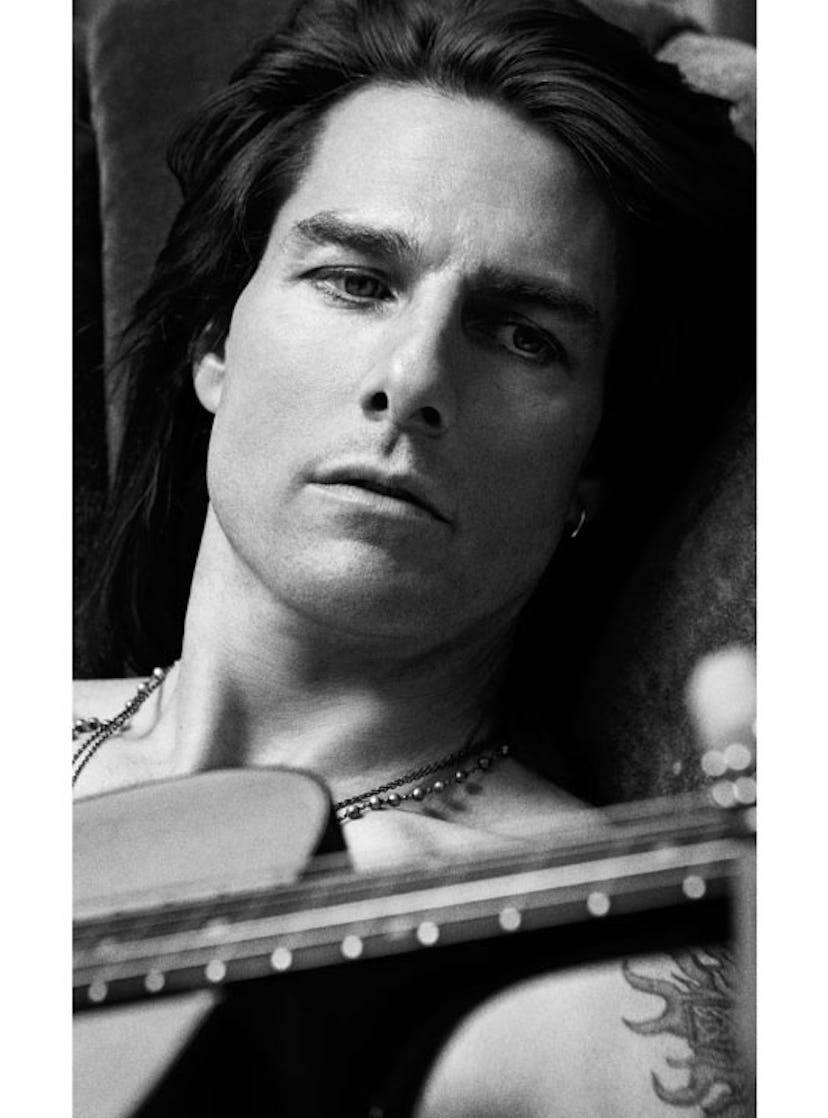Hey, Tom Cruise Doesn’t Deserve All the Blame For The Mummy
The flop of The Mummy is being put on Tom Cruise’s shoulders, but he’s certainly not the only party to blame.

The Tom Cruise-starring The Mummy fell thudding into cinemas this weekend like, well, an actual corpse wrapped in tissue paper. The film that was supposed to kick off an ambitious shared cinematic universe full of classic movie monsters was both a critical and domestic box office flop. You might have been able to hear the bones actually cracking if it hadn’t been drowned out by all the chatter around Hollywood that followed.
Much of that talk has centered around a favorite Hollywood pastime: who to blame. It must be somebody’s fault, after all. Well, a juicy piece full of unnamed sources places much of the blame squarely on Cruise’s shoulders. According to the story, Universal Pictures offered Cruise an unusual amount of control in order to woo the star, and as a result, “several sources close to the production say that Cruise exerted nearly complete creative oversight on The Mummy The Mummy, essentially wearing all the hats and dictating even the smallest decisions on the set.”, essentially wearing all the hats and dictating even the smallest decisions on the set.”piece full of unnamed sources places much of the blame squarely on Cruise’s shoulders. According to the story, Universal Pictures offered Cruise an unusual amount of control in order to woo the star, and as a result, “several sources close to the production say that Cruise exerted nearly complete creative oversight on
Per the gossip, he brought on his own screenwriters to rejigger the script (which resulted in a lessened focus on the actual mummy, and more focus on Cruise’s character), practically self-directed major action scenes, had input into the marketing, and even played a major part in choosing the high-profile June release date.
The result was he turned what should have been a universe-establishing horror-adventure movie into a weird approximation of your by now standard Tom Cruise movie.
Though director Alex Kurtzman, a guy best known for his screenwriting work (with only a small-budget drama under his belt as a director), was already in consideration before Cruise came onboard, the story goes that Cruise approved him—Kurtzman had co-written the script for Mission: Impossible III, after all. Yet, when Kurtzman proved out of his depth on the set of his first major blockbuster, it was Cruise who often stepped in as the real driver behind creative decisions.
Yes, it seems easy to blame Cruise. If nothing else, at least he’ll be able to survive the disaster. He’s still got those Mission: Impossible and Jack Reacher franchises to fall back on. Hell, he’s even reviving Top Gun. In fact, he may very well end up back in this same role in future movies in Universal’s Dark Universe franchise, as it looks like the movie’s international box office will help salvage the numbers. He’ll be alright. He’s Tom Cruise.
But lets not pretend this is all Tom Cruise’s idea. This whole idea to reboot The Mummy franchise after just nine-years since the Brendan Fraser-starring version ended, and then build an ambitious and mega-expensive mega-franchise around it, existed before Cruise ever signed on.
The idea that there was this much of a creative and leadership vacuum for Cruise to fill in the first place is sort of bonkers.
Shared cinematic universes require a lot of different directors and screenwriters working in consort by definition, but there’s almost always a central creative force making sure it all comes together. For Marvel that’s studio president Kevin Feige. DC’s latest wave of movies, including __Wonder Woman, have Zack Snyder. Disney brought in J. J. Abrams to help shepherd this current generation of Star Wars and has Lucasfilm president Kathleen Kennedy overseeing the whole extended universe. There’s an entire shared universe of movies based on Hasbro toys in the works, and in that instance they’ve decided to go with a writers-room approach packed with talent (including, to our amusement, Pulitizer Prize-winning novelist Michael Chabon).
For Dark Universe, that role is supposed to fall on Kurtzman and his co-writer Chris Morgan (a Fast & Furious franchise vet). They’re set as producers on films throughout the franchise.
Not, notably, Tom Cruise.
Of course, those other successful cinematic universes have something else going for them as well: They made sense.
Those comic book universes are based on decades of source material in which the characters actually do swoop in and out of each other’s storylines all the time. Star Wars, of course, has its own complicated lore bigger than any one producer, director, or unusually powerful actor. These are pre-existing roadmaps, and it feels natural if not necessarily always advisable to build a cinematic universe from them.
The Universal monsters may be iconic, and they have their history together, but it’s not exactly like there’s a compelling reason or history that has them bouncing in and out of each other’s movies.
So, really, should we blame Tom Cruise for all of this? A vacuum of vision and leadership existed, and he stepped in and did what he does best: Making The Mummy a Tom Cruise movie. It’s not like he cast himself, either.
And, hey, maybe it wasn’t such a bad idea. Domestic failure aside, the film still took in $142 in its opening weekend oversees, making it Tom Cruise’s biggest international opening ever.
Related: Brad Pitt, Hollywood God, Comes Out as Painfully Human
Tom Cruise Takes W’s Screen Test: